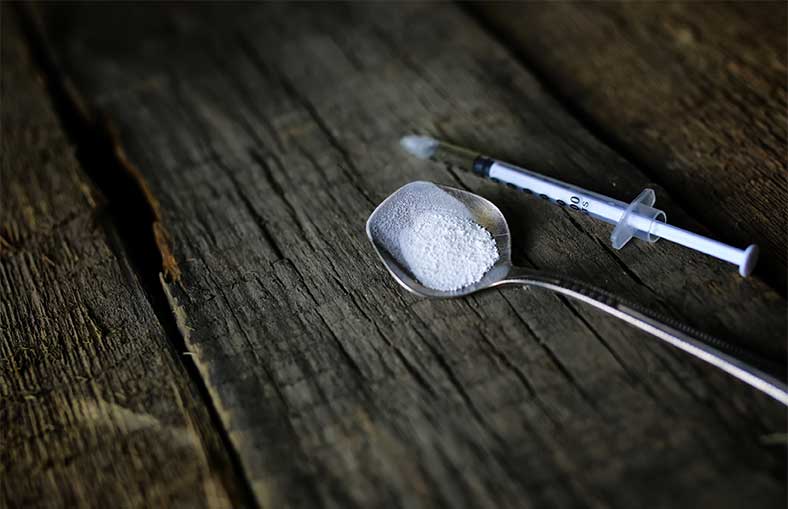Shooting Meth | Effects & Dangers
Methamphetamine is a powerful stimulant drug that’s sometimes injected by those looking to maximize its euphoric effects. However, injecting methamphetamine increases both its addictive potential and the risk that it will cause serious short-term and long-term effects.

Methamphetamine is a street drug usually produced and sold as a white powder or off-white crystals with no smell and a bitter taste, though the drug’s form and appearance can vary. Common street names for meth include crystal meth, crystal, tina, crank, ice, and tweak.
No matter the name, methamphetamine has a well-deserved reputation for being intensely euphoric, addictive, damaging, and even deadly when abused.
This is especially true when individuals choose to inject methamphetamine into their bloodstream, amplifying the effects of meth as well as its short- and long-term risks.
Effects Of Injecting Meth
Methamphetamine injection, or shooting, is the fastest possible route of administration for the drug and delivers the entire dose directly and swiftly into the bloodstream.
The drug will then take effect within mere seconds, driving a highly euphoric but short-lived “rush” followed by an energetic stimulant high.
Although injecting methamphetamine can temporarily increase its effects, the risks associated with injection methamphetamine use are especially severe.
Dangers Of Shooting Meth
Dangers and risks that may occur with injection methamphetamine abuse include infections, collapsed veins, and other health problems.
Track Marks & Skin Infections
Track marks describe the damage chronic injection drug use can cause around injection sites on the arms and elsewhere on the body. This can include puncture wounds, bruising, irritation, staining, sores, abscesses, infection, and permanent scarring in these areas.
Collapsed Veins
Intravenous injections, especially when performed by amateurs outside of a medical setting, can sometimes cause so much damage to veins that they fail entirely. While the body will reroute the blocked blood flow with time, the vein will never again be able to be used for IV injection.
Bacterial, Viral, & Fungal Infections
Using non-sterile or shared equipment also puts one at a severely increased risk of contracting serious bloodborne diseases like HIV/AIDS, hepatitis c, and hepatitis b.
Other bacterial infections may also trigger endocarditis and, in turn, permanently damage and block a person’s heart valves leading to life-threatening complications.
Substance Use Disorder
There are many stories of people who try meth once and are immediately hooked, starting off a spiral of substance abuse and meth addiction. This is especially true when a person shoots meth.
What started off as a pleasurable activity turns into a harmful compulsion that can do tremendous harm to a person’s physical and mental state, relationships, finances, and freedom.
Once substance use disorder develops, stopping use can be a difficult challenge that may require professional detoxification and addiction treatment services.
Mental & Physical Deterioration
Injection meth use can also lead to devastating long-term effects on the human body and mind.
These can include sleep deprivation, malnutrition, extreme weight loss and wasting, severe dental issues (“meth mouth”), mood and personality changes, compulsive behaviors, and prolonged periods of psychosis with hallucinations, delusions, and paranoia.
Heightened Risk Of Overdose
All methamphetamine abuse carries some risk of overdose, especially for those who mix methamphetamine with opioids or other drugs, or have pre-existing conditions like heart anomalies.
Injecting methamphetamine carries an especially high risk that the drug will overwhelm the body’s internal balance and cause severe complications like:
- chest pains
- high body temperature
- elevated heart rate and blood pressure
- kidney problems
- mental confusion
- psychotic symptoms
Sudden death from heart attack, stroke, and circulatory collapse may also occur.
Meth Addiction Treatment
The intensive cravings and psychological symptoms of methamphetamine withdrawal can make it tragically difficult for people to stop using meth on their own, no matter how painful and damaging its effects have become.
Professional inpatient and outpatient treatment programs for methamphetamine recovery can help those struggling with methamphetamine use through this extended recovery process, offering care and support through evidence-based interventions and services.
Medical Detox
While not typically life-threatening, the symptoms of methamphetamine withdrawal can be intense and lead to continued drug use and an increased risk of overdose.
Meth withdrawal symptoms are best managed in a short-term inpatient detox program where participants will have 24/7 access to healthcare professionals, along with specific medications, comfort, and nutritional guidance.
Inpatient Care
Residential treatment facilities offer the most focused and supportive environment for addiction recovery. These programs give participants space away from their normal environment and triggers as they develop positive coping strategies and motivation to sustain long-term recovery.
Behavioral health treatments for meth addiction can include contingency management and cognitive behavioral therapy.
Aftercare
Sober living housing, employment assistance, peer support groups, and case management are just a few of the aftercare options available to support the recoveries of those who complete their time in a professional treatment center.
If you or a loved one would like to learn more about addiction treatment options for methamphetamine or other substance use disorders, please contact Ohio Recovery Center today.
- National Harm Reduction Coalition https://harmreduction.org/issues/safer-drug-use/injection-safety-manual/potential-health-injections/
- National Institute on Drug Abuse (NIDA) https://nida.nih.gov/publications/research-reports/methamphetamine/what-treatments-are-effective-people-who-misuse-methamphetamine
- Substance Abuse and Mental Health Services Administration (SAMHSA) https://www.samhsa.gov/meth

